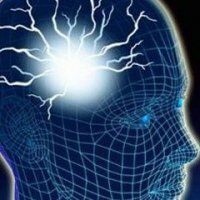Drugs for Alzheimer's Disease

Despite the fact that there is no treatment for Alzheimer's disease itself, as there is no proven treatment regimen that would slow the progression of the disease, taking some medicines for Alzheimer's disease, one can still improve the mental abilities of the patients. The treatment with medicines at the very beginning of the disease makes it possible for patients to perform daily tasks, and also be independent enough and stay at home. There are also medicines that help to cope with the most debilitating manifestations of Alzheimer's disease, including behavioral disorders, depression, for example, aggression and overexcited state.
Medications for Alzheimer's Disease
Arisept
The most common drug for the treatment of Alzheimer's disease. The drug stops the disintegration of acetylcholine in the brain. Acetylcholine - a chemical substance involved in the processes of memory and other mental processes. Arisept is recommended for the treatment of manifestations of the disease at all stages of the disease. Aricept preparation Alzheimer's disease does not heal, but in some cases it helps improve memory, mental activity, ability to perform primitive actions. Side effects are insignificant and can be expressed as nausea, diarrhea, vomiting, sleep disorders, excessive fatigue and weight loss.
Razadin and Exelon
These new drugs also stop the breakdown of acetylcholine. Their treatment is most effective in the early stages of the disease. Side effects are the same as in the treatment with Aricept.
Namenda
This medication is prescribed for the treatment of manifestations of the disease of the middle and severe stages. The drug Namenda has a different mechanism of action, in comparison with other drugs for the treatment of manifestations of the disease. Namenda performs a protective function - regulates the level of glutamate in the brain. This chemical is involved in the processes of memory and learning. Glutamate activates certain chemicals in the brain, as a result, some amount of these substances penetrates into the nerve cells of the brain. Brain cells of patients with Alzheimer's disease of glutamate burn too much. The drug Namenda supports the activity of glutamate. And this, in turn, improves the ability of the brain to process information and returns memory. Namenda is the first drug approved for the treatment of severe disease. The remaining drugs are designed to treat manifestations of mild as well as moderate stage. Treatment with Namenda in combination with Aricept, Exelon, Razadin or Cognex can be more effective. Side effects can be expressed in the form of increased fatigue, dizziness, blurred consciousness and headache.
Cognex
This drug also stops the disintegration of acetylcholine. In the treatment of Cognex, there may be side effects such as vomiting, nausea, abdominal pain, diarrhea, skin rash and indigestion. In addition, Cognex can cause a violation of the liver, so the patient taking this drug, it is necessary to be under the constant supervision of a doctor and take tests to monitor the functional state of the liver.
Razadin, Exelon and Cognex allow to cope only with manifestations of the disease of mild and moderate stage. The drug Arisept - with symptoms at all stages of Alzheimer's disease. Namenda is prescribed for patients suffering from middle and severe disease. According to the research of the American Academy of Neurology, in addition to these drugs, vitamin E can also delay the deterioration of Alzheimer's disease.



